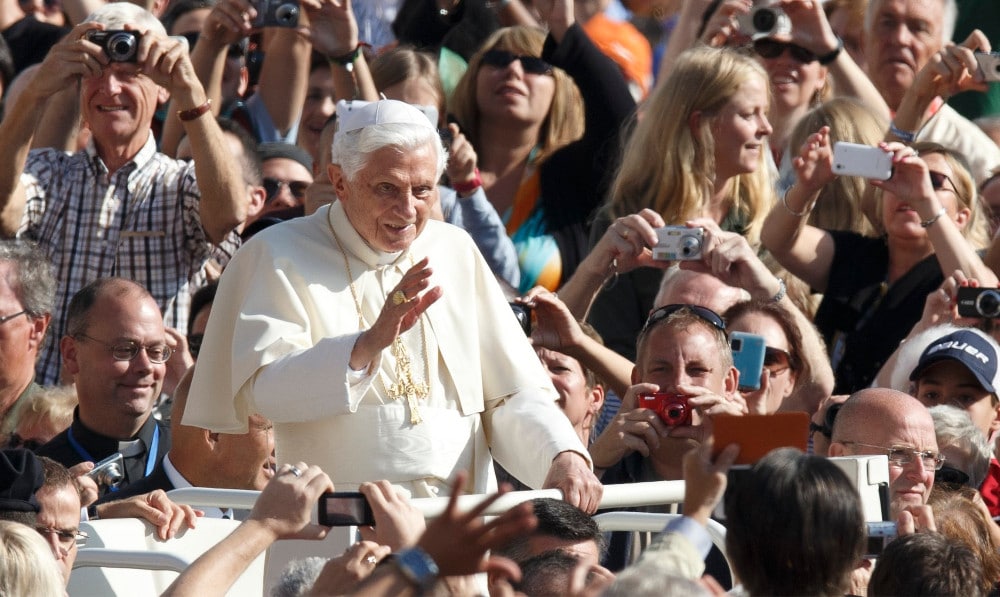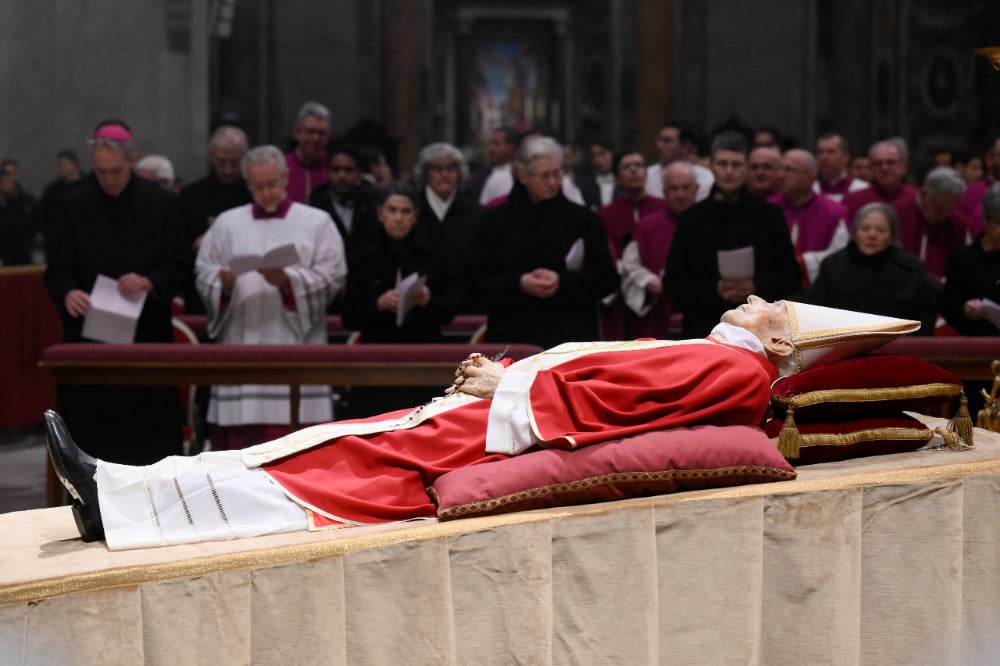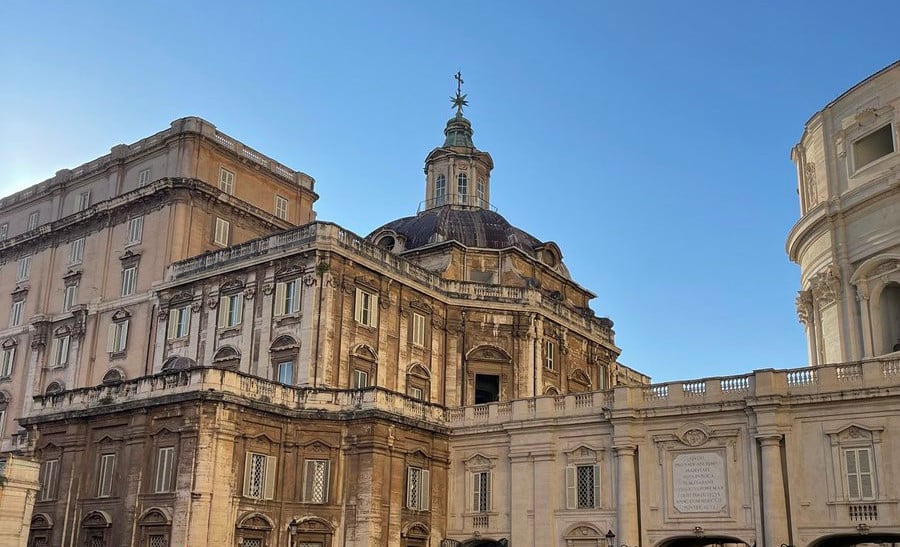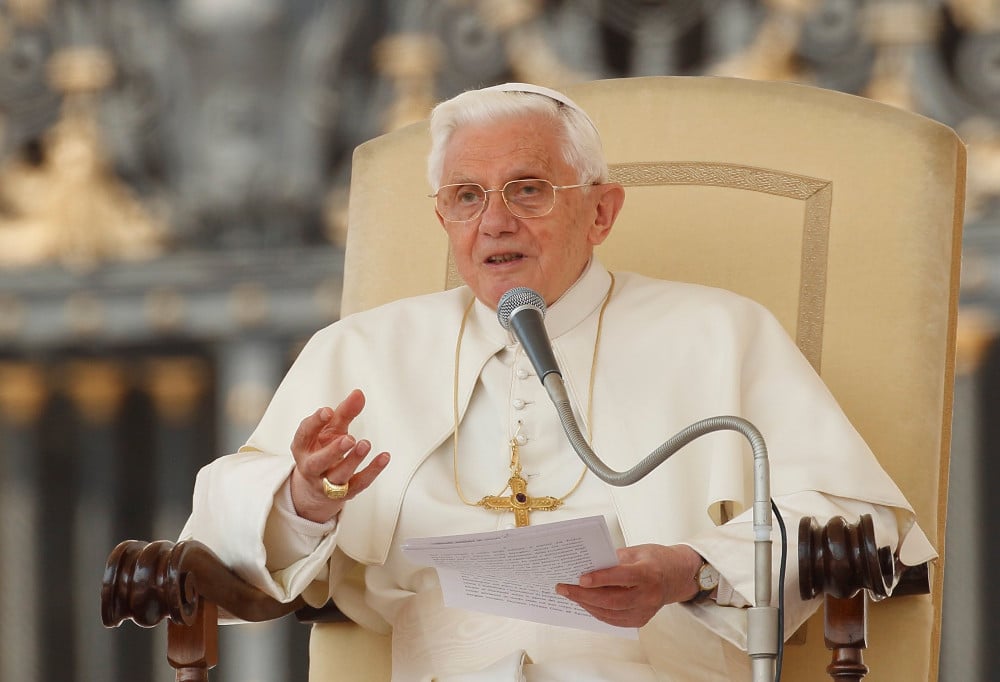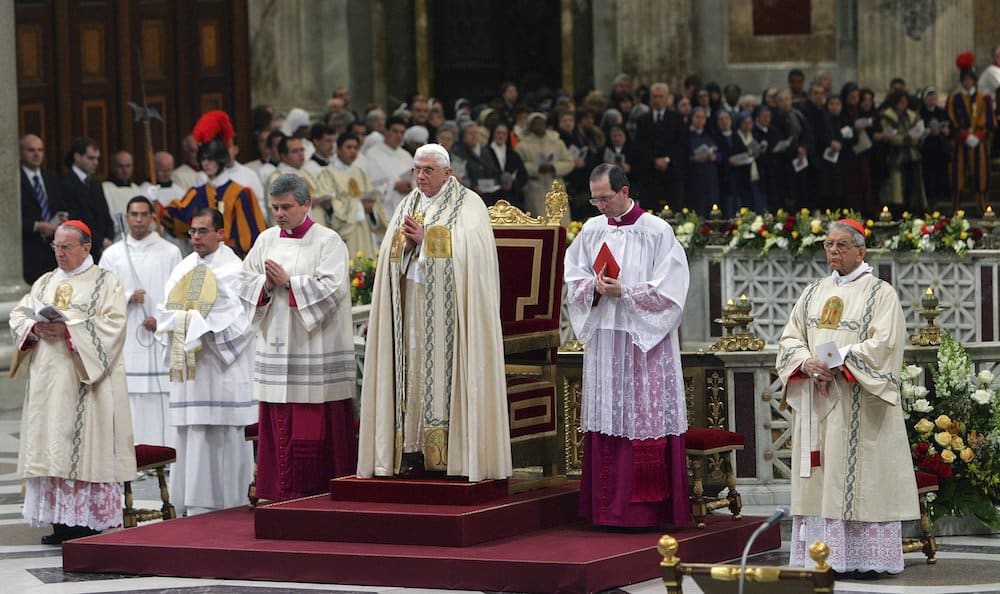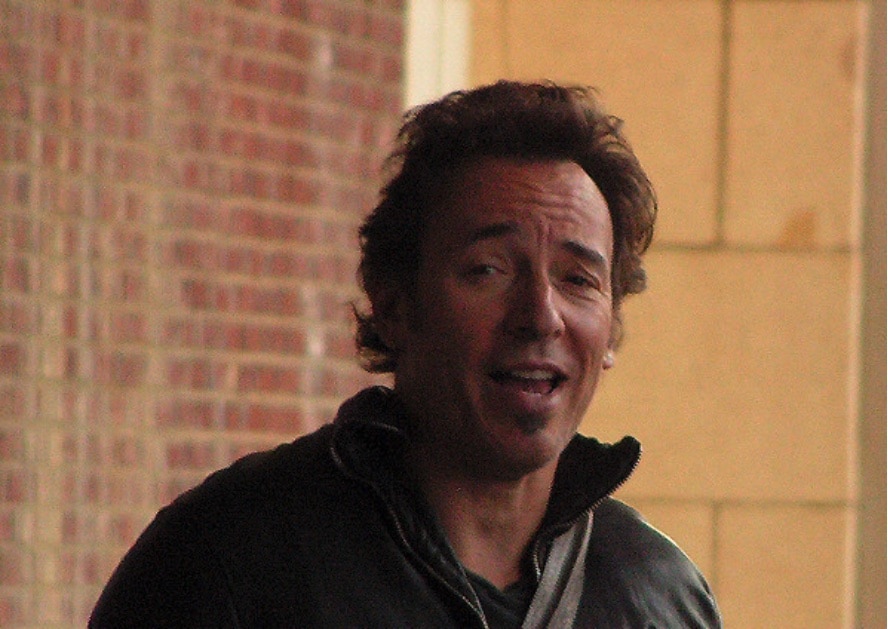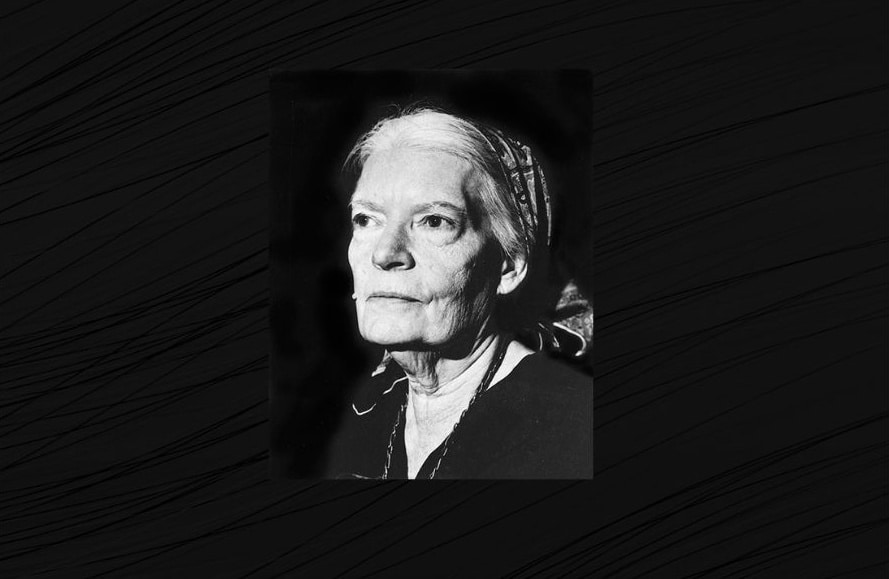Following the death of Pope Emeritus Benedict XVI, many of the comment boxes and social media feeds reacting to the announcement of his death were marked by malicious slander. In the secular press, the late pontiff’s legacy has been recapped with quick references to the clerical sexual abuse crisis and financial corruption (including the betrayal of his butler in the Vati-Leaks scandal). Still other reports have cast Pope Benedict XVI as a traditionalist ideologue and offer facile contrasts of his pontificate with that of his successor, Pope Francis. These reports have pitted Catholics against one another, daring the faithful to identify more with one pontiff than the other.
While no one can or should deny evident differences between the popes, such as personality or approaches to liturgy and sacred worship, Catholics cannot allow narratives of the legacy of Benedict XVI to mar the unity of the Church. With grateful hearts we thank Almighty God for the life and work of Pope Benedict XVI. And in mourning the Pope Emeritus, we embrace the truth where it is to be found.
In 1990, while Cardinal Prefect of the Congregation for the Doctrine of the Faith, Joseph Ratzinger issued an instruction called Donum Veritatis, on the vocation of Catholic theologians. The document presented a vision for the mission of theology and focused in particular on the relationship between theologians and pastors. Truth is unifying, the instruction declares. “It frees men from isolation and the oppositions in which they have been trapped by ignorance of the truth,” writes Cardinal Ratzinger. Truth unites those who seek it and opens the way to God.
Truth is not isolating. It is not a cudgel. “Truth, by its nature, seeks to be communicated since man was created for the perception of truth and from the depths of his being desires knowledge of it so that he can discover himself in the truth and find there his salvation,” he adds. Pope Benedict XVI lived this mission of service to the truth. And in imitation of him, we must embrace the Truth.
One popular misconception of Pope Benedict was that, while serving as pope, he remained solely a scholarly theologian who wasn’t an effective pastor or evangelizer of the Faith. But that is a false narrative. While his intellectual gifts can’t be denied, it is abundantly clear in his speeches and writings that his pontificate was firmly centered on bringing Christ to the world and the world to Christ.
Expecting to see his papacy transformed into a global arm of his previous work in the Congregation for the Doctrine of the Faith, where he served as the Church’s doctrine czar, critics were stunned when he issued his first encyclical letter on the love of God, Deus caritas est. “In a world where the name of God is sometimes associated with vengeance or even a duty of hatred and violence, this message is both timely and significant,” Pope Benedict wrote. “For this reason, I wish in my first Encyclical to speak of the love which God lavishes upon us and which we in turn must share with others.”
Moreover, to the surprise of many, Pope Benedict XVI embraced environmentalism. “If we want justice and peace, we must protect the habitat that sustains us,” Benedict said on the 2010 World Day of Peace. These and other messages were so effective that he was dubbed “the Green Pope” by some. And in addition to his global advocacy, Pope Benedict installed solar panels in the Vatican, unveiled a hybrid popemobile and authorized the purchase of carbon credits by the Vatican Bank.
Further, motivated by his deep and earnest desire for Christian unity, Pope Benedict took the extraordinary step of making it possible for many Anglicans to enter full communion with the Catholic Church corporately. Responding to the petitions of these faithful Christians, Pope Benedict wrote, “The successor of Peter, mandated by the Lord Jesus to guarantee the unity of the episcopate and to preside over and safeguard the universal communion of all the Churches, could not fail to make available the means necessary to bring this holy desire to realization.” Far from dismissing their proper Christian heritage, he worked to safeguard it by establishing the Anglican Ordinariates.
Pope Benedict’s efforts to address the clerical abuse crisis, by bringing the cases under the authority of the Congregation for the Doctrine of the Faith, shows how seriously the late pope took the need to reform the handling of accusations. Under his guidance, the congregation systematically began to address the festering crisis. As pope he never wavered from the course he set as a cardinal working in the congregation. Similarly, by allowing external audits of Vatican finances, the first pope to do so, Pope Benedict began an ongoing process of bringing light to Vatican finances and working toward greater transparency.
Service to the Truth always stretches a man, breaks shallow stereotypes and boldly confronts false narratives. Catholics will continue to wonder about whether the late pontiff’s resignation was in his best interest or the best interest of the Church. We should not fear to take him at his word. For one, now that history has passed, it cannot be otherwise. But moreso, because Benedict XVI, whose life was spent in service to the Truth, would not end that life in deception. In service to the Truth, then, let us seek unity as we share the memory of this extraordinary, humble servant of God’s Church.
Our Sunday Visitor Editorial Board: Father Patrick Briscoe, Gretchen R. Crowe, Scott P. Richert, Scott Warden, York Young

